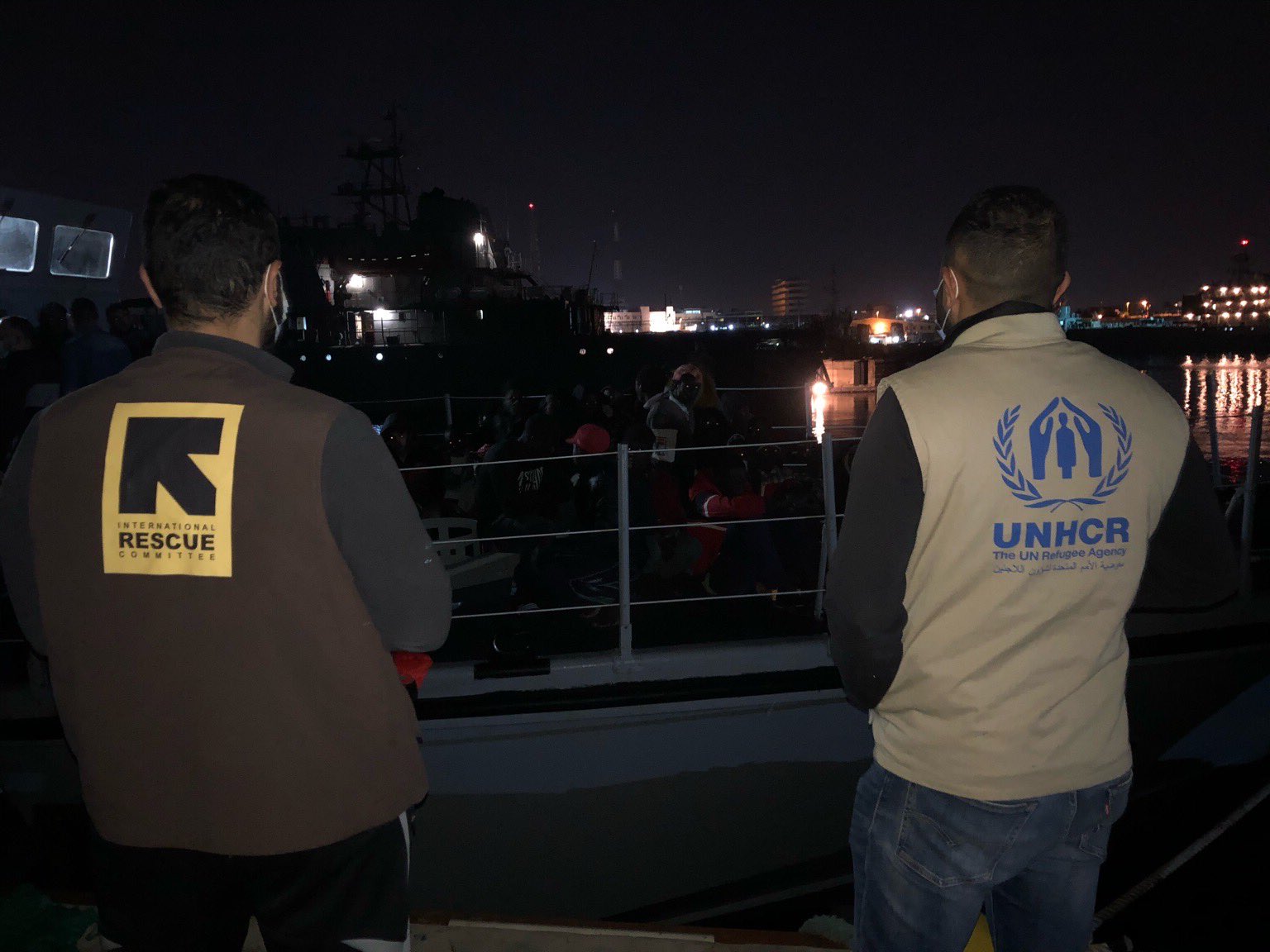A presentation by the UN High Commissioner for Refugees gives important figures on people fleeing across the Mediterranean. Accordingly, the Libyan coast guard intercepts mainly people from Mali, the average failure rate for crossings is 33 percent. The UN document gives EU states tips for “prevention of dangerous journeys”.
Actually, the United Nations High Commissioner for Refugees (UNHCR) should ensure that those seeking protection enforce their right to asylum and find safe refuge after fleeing violence, persecution, war or disasters. In Libya, however, the organisation seems to be losing sight of this goal.
In a presentation, a UNHCR staff member provides EU member states with information on “prevention of dangerous journeys” from Libya and suggests strengthening repressive measures. To combat human trafficking and smuggling, the border agency Frontex should share more data “with relevant countries in Africa”. European authorities should conduct joint investigations “involving Libyan authorities in this field”, it adds.
The document was posted online by the British civil rights organisation Statewatch, which names the Special Representative of the Commissioner for Refugees for the Mediterranean, Vincent Cochetel, as the presumed author. According to the document, the presentation was given at the “Mechanism of Operational Coordination for the External Dimension of Migration” (Mocadem) on 13 January.
Mocadem is a new working group of EU member states to jointly manage their migration policies in countries of “particular interest”. These countries include Libya, Egypt, Tunisia and Niger. Since its founding two years ago, Mocadem has published regular dossiers. These papers, which are also published by Statewatch, state: If African governments help with EU migration control, they receive many millions of euros in return and, with a little negotiating skill, also more favourable conditions for the issuing of visas or for labour migration.
The figures presented by the UNHCR at the Mocadem meeting are quite striking. Last year, 78 676 sea departures from Libya took place, an increase of about 13 per cent compared to 2021. With 53 173 boat passengers, many people made it to Italy, and a few hundred also to Malta. However, about a third of the boats were intercepted by the Libyan coast guard, according to the count, a 23.5 per cent drop from the previous year.
Most of the refugees arriving in Europe via the Mediterranean currently come from Bangladesh, Egypt and Syria. According to the UNHCR, the probability of a successful crossing is 67 percent on average. Whether people make it is also a question of money, according to the document published by Statewatch: 83.5 per cent of all Bangladeshis reach Italy or Malta, while the rate for Malians is only 43 per cent. The UNHCR calls this “protection you can afford”.
Meanwhile, the presentation confirms observations that have already been heard from sea rescue organisations: In the second half of 2022, departures of large groups from eastern Libya increased significantly. This part of the country is not under the control of the Libyan government.
And there is another statistic that raises eyebrows: According to UNHCR, the number of deaths at sea decreased from 1558 in 2021 to 1358 in 2022, although the number of departures increased. The figures differ from the International Organisation for Migration’s (IOM) counts, which speak of 1417 deaths in the central Mediterranean in 2022 and over 2400 deaths in the Mediterranean as a whole. A spokesperson for the civilian rescue organisation Sea-Watch points this out to “nd”: “It is clear that this can only be an unreported figure, as cases remain undiscovered”.
Sea-Watch also criticises the UNHCR in principle. “Instead of being an advocate for refugees, we rather observe public silence regarding state policies of foreclosure and their consequences”. The UNHCR should also show solidarity with refugees fighting for their rights in Libya. Thousands of them had camped outside the UNHCR headquarters in Tripoli a year ago to protest against the inhumane treatment in closed camps by Libyan authorities, but were evicted and hundreds arrested.
The structures of the refugees themselves and their supporters also criticise the UNHCR. The UN agency tends to “speak for or about people on the move, instead of amplifing their voices”, writes the group Solidarity with Refugees in Libya at the request of “nd”. “Further, instead of listening and improving, UNHCR criticises refugees’ protests and remains silent in light of brutal evictions and detention lasting for many to the present day.” Solidarity with Refugees in Libya suspects that one reason for this is its financial dependence on Western states. This makes the UNHCR “part of a neo-colonial policing system for managing migration and respective protection of EU borders and other countries in the Northern hemisphere”. This also applies to the office in Libya, the statement reads.
The UNHCR is obviously aware that in Tripoli it is abandoning its role as a supporter of the interests of those seeking protection. It is exposed to “stronger criticisms by NGOs and refugee/migrant-led organizations” and non-governmental organisations “for what we do and what we do not do”, the presentation says. However, the office does not want to counter these “increased reputational risks” with a better policy for refugees, but with a “better alignment of our respective communication strategies”.
Published in German in „nd“.
Image: UNHCR at disembarkation of refugees in Libya in 2020 (UNHCR).





Leave a Reply